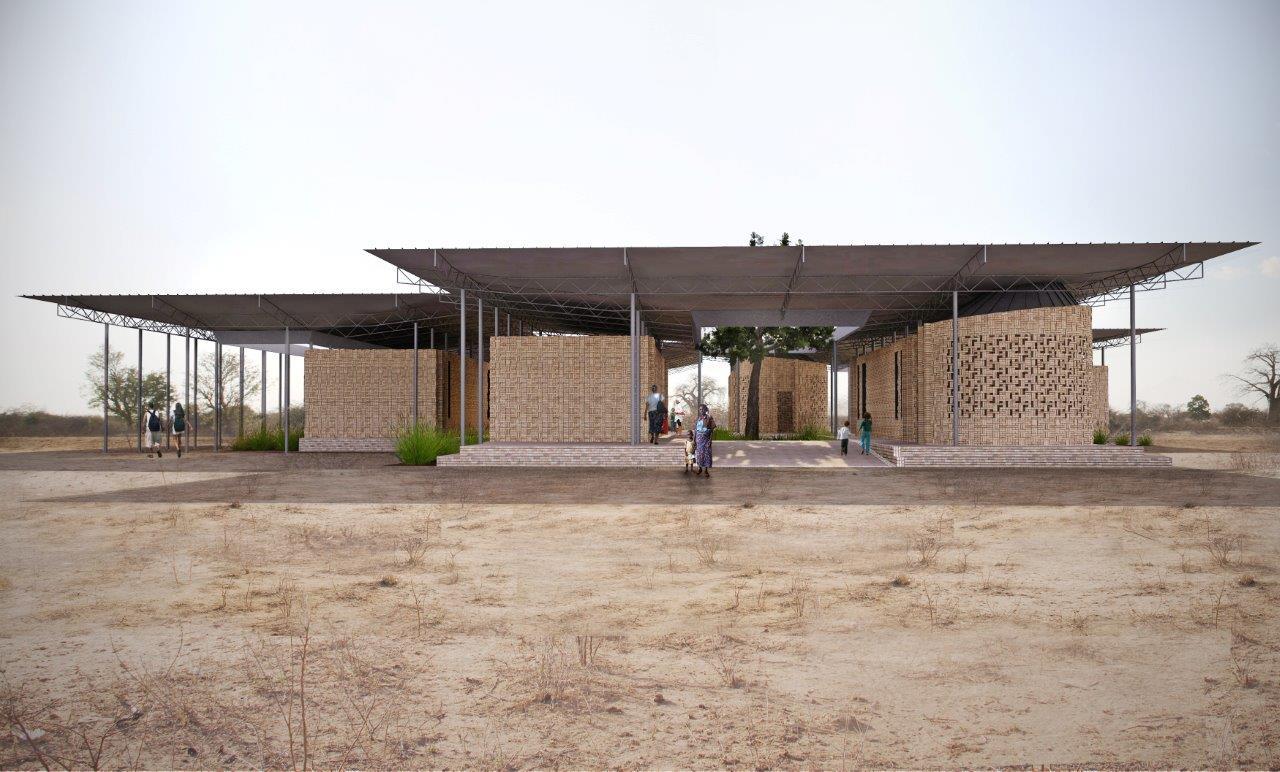New York-based practice Jaklitsch/Gardner Architects unveiled designs for the planned Mizengo Pinda Asali & Nyuki Sanctuary, to be built in Dodoma, Tanzania, earlier this week.
The earth-toned edifice built of locally sourced mud-fired bricks will host a honey extraction center, and, as the architects say, “will be an important educational and vocational tool in Tanzania.”
Three entities composed of American companies Follow the Honey and National Beekeeping Supplies, as well as Tanzanian-American enterprise Nyuki Safari Company, joined forces to make the facility a possibility, where efforts to support local beekeeping activities can be decentralized and improved.
“The partners hope to demonstrate how community-based resource management can stimulate return for all stakeholders and offer a means of economic independence to residents of rural communities,” the architecture firm said in a statement.
A cellular-patterned structure surrounding garden courts provides a framework for future expansion while fostering a sense of community, collaboration, and improvement.
Labor is sourced locally, and materials will be made on site. A custom brick bond recalls local weaving traditions, as it provides maximum ventilation to the building. The current design is intended to be built upon, accommodating expansion as the enterprise grows.
Construction on the Mizengo Pinda Asali & Nyuki Sanctuary project is set to start later this year.
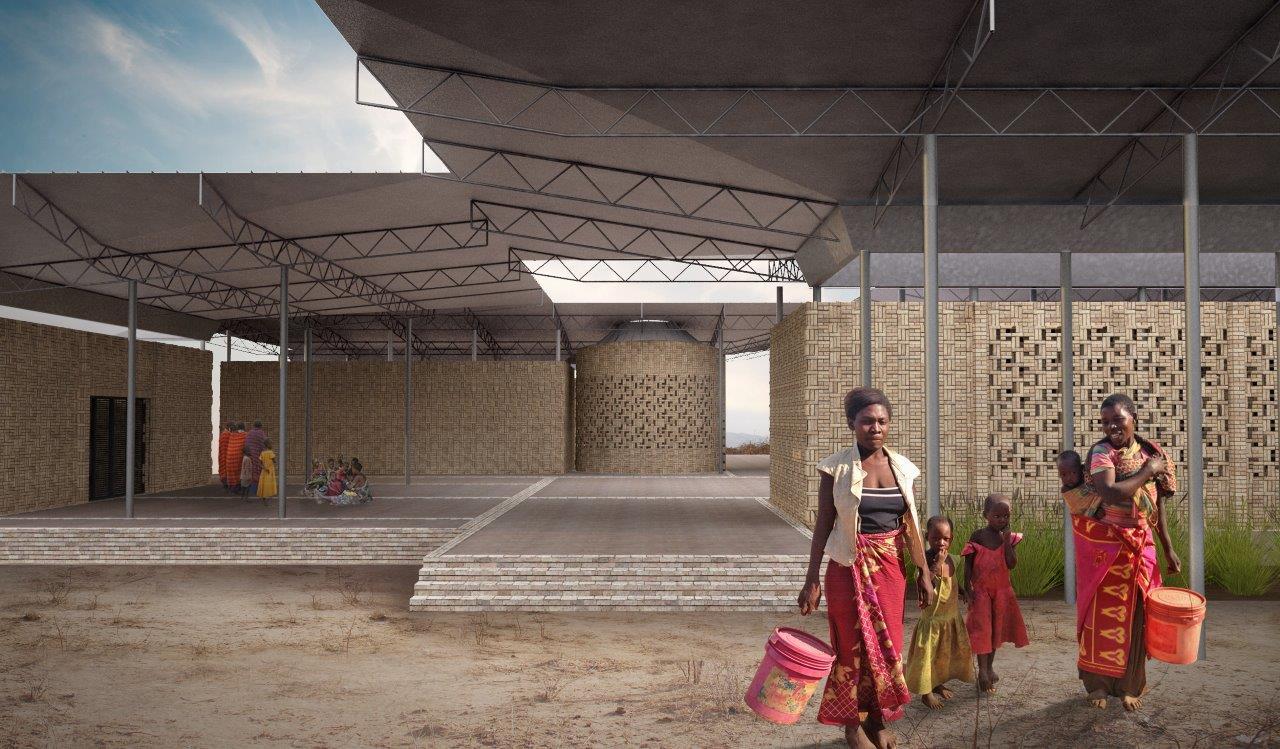
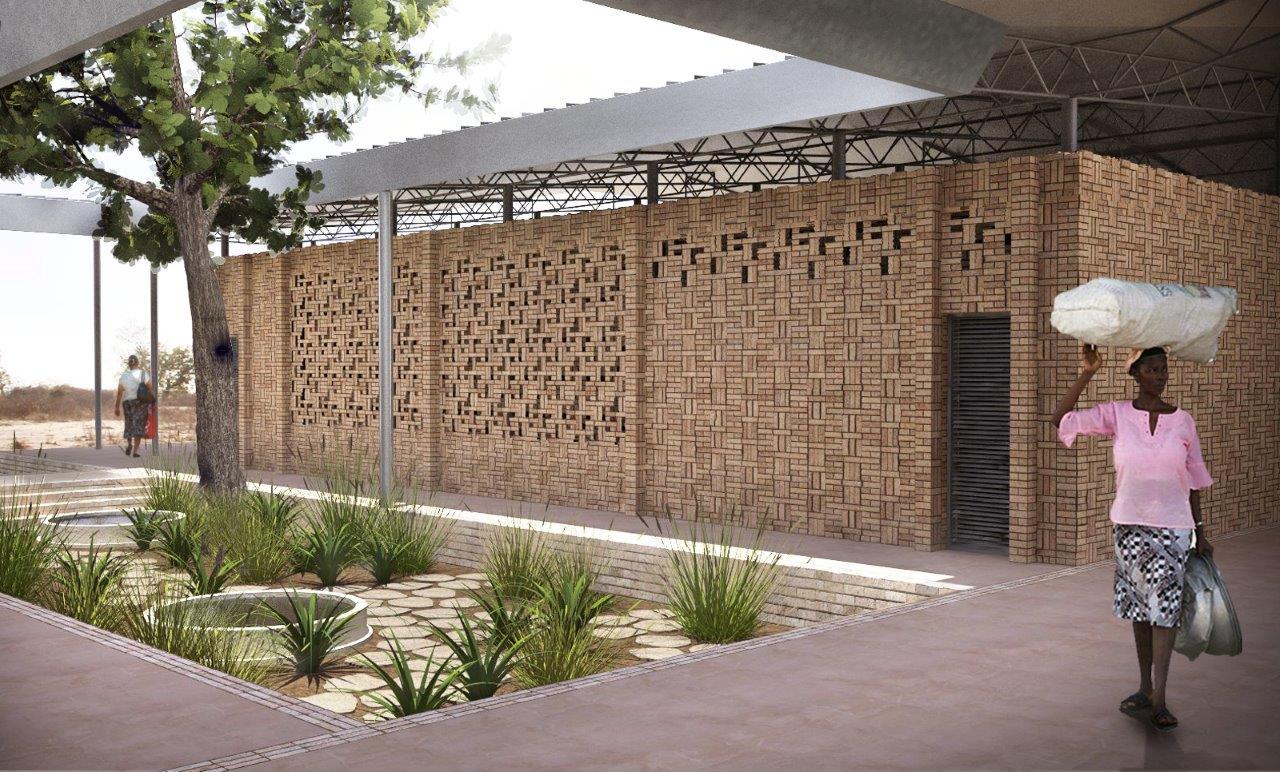
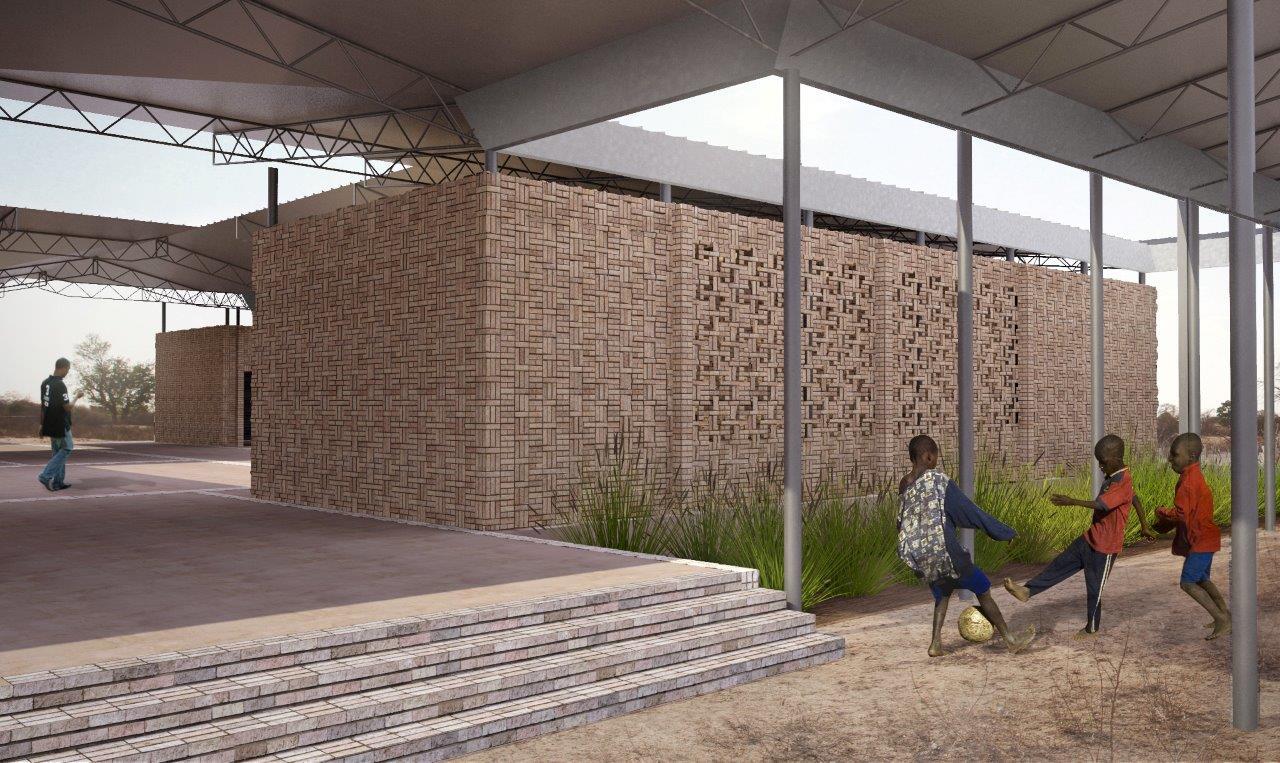
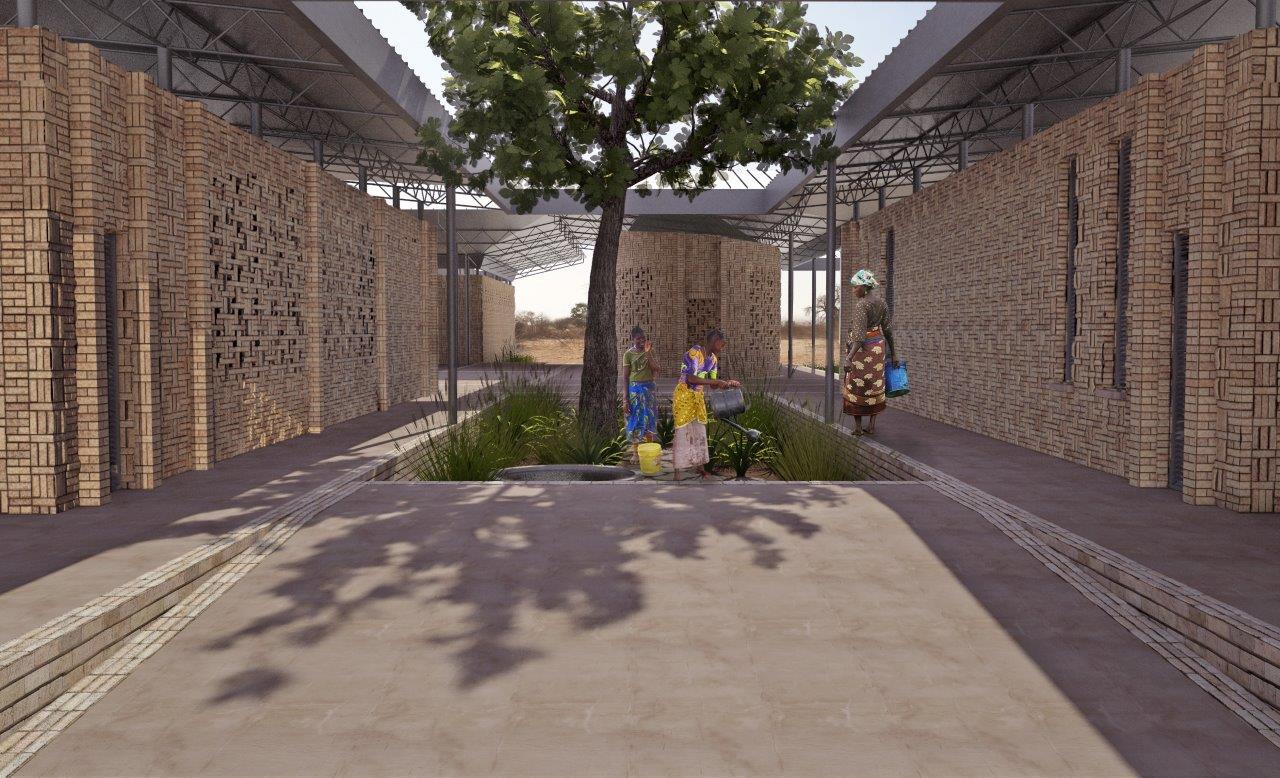
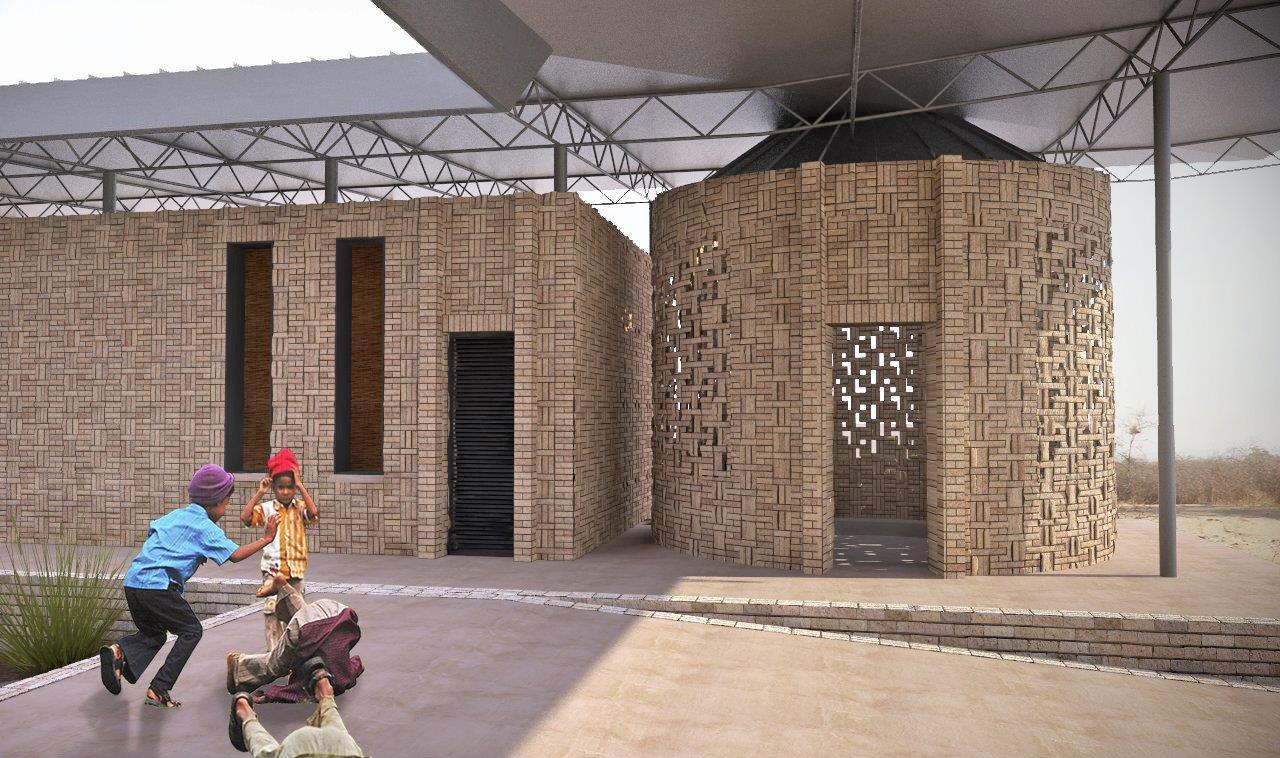
Related Stories
| Aug 11, 2010
Platinum Award: Reviving Oakland's Uptown Showstopper
The story of the Fox Oakland Theater is like that of so many movie palaces of the early 20th century. Built in 1928 based on a Middle Eastern-influenced design by architect Charles Peter Weeks and engineer William Peyton Day, the 3,400-seat cinema flourished until the mid-1960s, when the trend toward smaller multiplex theaters took its toll on the Fox Oakland.


